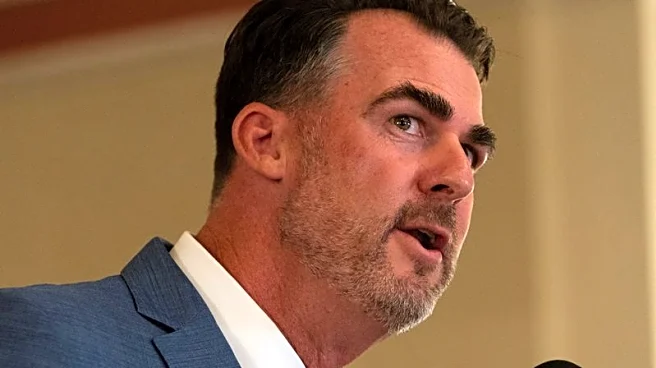Rapid Read • 8 min read
The Atlantic's podcast episode, hosted by Garry Kasparov, features a discussion with Masih Alinejad, an Iranian dissident and women's rights activist. The conversation centers on the challenges faced by dissidents in autocratic regimes, highlighting Alinejad's personal experiences of exile and assassination attempts due to her activism against the Iranian government. The episode underscores the importance of safeguarding democratic values and the role of dissidents in advocating for human rights globally. Alinejad's story exemplifies the risks faced by those who oppose authoritarian regimes and the need for international solidarity in the fight for democracy.
AD
This discussion is significant as it sheds light on the ongoing struggles of dissidents worldwide and the threats posed by authoritarian regimes to global democracy. The conversation emphasizes the interconnectedness of global human rights issues and the necessity for democratic nations to support dissidents. The episode also highlights the potential consequences of neglecting human rights in international relations, particularly under leaderships that may deprioritize these concerns. The insights provided by Alinejad and Kasparov serve as a reminder of the fragility of democracy and the need for vigilance in protecting freedoms.
The podcast suggests that continued advocacy and international cooperation are crucial in supporting dissidents and promoting democratic values. The establishment of organizations like the World Liberty Congress aims to unite dissidents and amplify their voices on the global stage. The episode calls for democratic nations to prioritize human rights in their foreign policies and to recognize the strategic importance of supporting pro-democracy movements worldwide.
The episode delves into the ethical and cultural dimensions of supporting dissidents, challenging Western democracies to confront their own biases and inconsistencies in addressing human rights abuses. It also explores the long-term implications of failing to support dissidents, which could lead to the erosion of democratic institutions globally. The conversation highlights the moral responsibility of democratic nations to act in defense of human rights, not only within their borders but also internationally.
AD
More Stories You Might Enjoy












